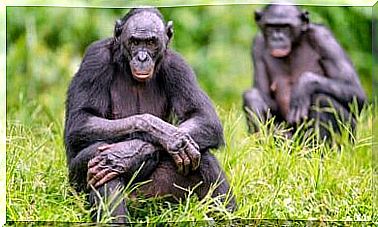Is It Ethical To Use Therapy Monkeys?

The care of dependent people is something that concerns many countries on the planet. In the United States, a solution has been created that, while effective, may not be ethical: therapy monkeys.
What are therapy monkeys?
The Helping Hands organization trains monkeys that can perform basic tasks and help people with paralysis or other disabilities. To do this, monkeys are trained to turn off lights or turn on all kinds of devices, bring objects or even clean their owners.
In the eyes of many Americans, therapy monkeys for addicts are acceptable—and even positive.
These primates seem to have a better life than their circus or experimental companions, but we must ask ourselves whether monkeys benefit from this relationship or not.

Are therapy monkeys a good idea?
Something that is more than proven nowadays is that you cannot have a monkey as a pet.
Although in the United States this practice is still widespread, fewer and fewer people have a monkey in their home and more and more animals arrive at primate sanctuaries with their lives destroyed.
This causes a dependency that we don’t normally maintain over time: the adult stage makes these animals a little aggressive, mainly because they weren’t raised by their own species.
We also have distinct languages that turn into misunderstandings, and these turn into attacks.

Therapeutic Monkey Training Practices
In its origins, the association pulled out the prey of the puppies, who separated after only 10 weeks from their mothers. While currently rejecting these practices, Helping Hands has come under serious criticism for the management of its cebus monkeys, the species it works with.
Currently, the practices performed are less savage, but they still cause pain for primates : after separation from their mothers, they are taken to homes where they learn to behave among humans, and then go to the house where they are destined to serve as therapy monkeys.
After they become attached and get used to living with certain people, they are separated when the work with them “ends”, something that is traumatic for humanized animals.
Naturally, these therapeutic monkeys are treated with caresses and prizes. However, the dangers of having a monkey in the home are compounded by the fact that we deprive them of a decent life with their species.









